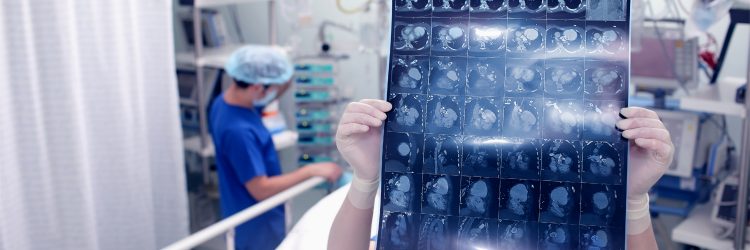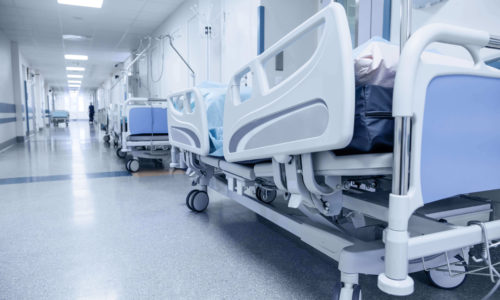Call and speak to our specialist medical negligence team. Find out if you can claim compensation.
CALL 0800 083 5500
Have you or a loved one suffered from a delayed or incorrect cancer diagnosis?
You may be entitled to compensation that can help with treatment costs, financial loss, and peace of mind. At Blackwater Law, our specialist solicitors help individuals and families every day get the justice they deserve, get free advice today.

If your cancer, or a family member’s cancer, have been mistakenly diagnosed with cancer by a GP or specialist doctor you may be entitled to make a cancer misdiagnosis claim, it is recommended you speak with a specialist medical negligence solicitor. There is likely to be a particularly strong legal argument for compensation if your cancer treatment was delayed as a result of misdiagnosis and this treatment was therefore not as effective as it could have been if the diagnosis had been made correctly in the first instance. There are a number of circumstances that may provide grounds for a claiming compensation for misdiagnosis of cancer, these include:
Any form of cancer can be misdiagnosed by a doctor or nurse, with potentially a devastating impact for your long-term prognosis or that of your family member. Blackwater Law will advise you on a cancer misdiagnosis claim relating to:
The team of medical negligence solicitors at Blackwater Law are recognised by The Legal 500 as being one of the leading teams of lawyers based in the South East for advice and representation in relation to medical negligence claims. The reputation of our medical negligence lawyers means they advise and represent clients across the country in misdiagnosis claims relating to a wide range of ailments, including cancer.
Medical negligence claims, particularly those involving misdiagnosis of cancer, are often complex in terms of both the legal issues, but also the medical issues involved. It is for these reasons that in order for your claim for misdiagnosis to be successful, you need to speak to a specialist solicitor who is experienced in dealing with such clinical compensation claims.
Ensuring you seek advice from a specialist clinical negligence lawyer not only gives you the best chance of being successful in making a claim, it also ensures that you receive the maximum compensation amount if your claim is successful.
We realise that even though you may be thinking about making a claim for compensation, you may be worried about potential legal fees associated with doing so. Blackwater Law undertake all medical negligence misdiagnosis claims on a no win, no fee basis and this includes all accepted claims for cancer misdiagnosis and delayed diagnosis compensation.
When you make a cancer misdiagnosis claim with Blackwater Law, this will be on a no win, no fee basis. There will be no financial risk.
When you instruct Blackwater Law to advise and represent you in claiming compensation, your solicitor will begin to build evidence in support of your case. Blackwater Law is particularly well positioned to do this due to the team’s national panel of medical experts.
Our solicitors at Blackwater Law research and identify medical specialists that can provide expert medical opinion on your case. They will assess medical records and comment on the treatment you have received (or lack thereof) and whether this was appropriate and reasonable. The medical experts we instruct on our clients’ cases are specialists in their field and are able to identify instances of poor care and errors on the part of medical professionals. They also provide comment on whether your condition would have been as bad as it is if an appropriate diagnosis had taken place and a reasonable level of care had been provided.
In complex cases we may instruct several medical experts who specialise in different areas of medicine, so as to ensure the evidence supporting your cancer misdiagnosis claim is the strongest it can possibly be. These professional opinions are crucial to your cancer misdiagnosis compensation case being successful. Because Blackwater Law deals with a large number of medical negligence compensation claims we have, over the years, built a unique panel of medical experts all specialising in different areas of medicine. This means we can call upon the most appropriate medical expert/s required for your specific case, given the circumstances of the medical negligence you have suffered.
Seeking advice from a specialist medical negligence solicitor will ensure your case has the best chances of success.
Cancer Research UK estimates that around half of us will develop one form of cancer or another. However, there are particular factors that may be linked to an increased risk of developing cancer, although risk factors can vary across different forms of cancer. Broadly speaking, risk factors include:
Other health conditions can also be linked to a higher risk of developing specific forms of cancer but you are best to view the specific pages of this website relating to each form of cancer for more information in relation to each.
The most appropriate course of treatment for cancer will depend on the circumstances of the patient, the aggressiveness of the caner and the stage to which the cancer has developed. Commonly, treatment of cancer may involve one or several of the following:
Radiotherapy: This involves the focus of high energy X-ray beams onto the cancerous cells. Approximately half of cancer patients will undergo radiotherapy as part of their treatment plan. It is often used in conjunction with other forms of cancer treatment. For instance, being used to shrink the cancerous tumour before surgery.
Chemotherapy: This involves medication being taken either in the form of tablets or via a drip. Chemotherapy can be undertaken in and of itself but can also be part of wider cancer treatment plan, with it being combined with radiotherapy to provide for more effective treatment overall. There are a range of side-effects associated with chemotherapy treatment including suffering nausea, hair loss, fatigue and tiredness, reduced resilience to infection, dry and irritable skin, diarrhoea or constipation.
Surgery: A surgical procedure can be undertaken to remove all or part of a tumour. In some instances radiotherapy or chemotherapy may be prescribed in advance of a surgical procedure to make the tumour easier to operate on. In some cases there may be an increased risk of surgical error, such as where tumours are close vital organs.
Your treatment package should be tailored by specialist doctors to your circumstances, i.e. the type of cancer you have, your wider health and any other conditions or ailments you have, as well the aggressiveness of your cancer and the stage to which it has already developed. It may be that your claim for compensation relates to your treatment package. The treatment recommended and provided to you may not have been what would be best given your circumstances.
The first step to claiming compensation for misdiagnosis of cancer is to find out whether you may actually have grounds for a case. The only way to determine this is to call Blackwater Law and speak with our specialist medical negligence team. You can explain to the solicitor you speak with how and when your cancer was diagnosed, whether there were any delays, how it was or is being treated and what the care you have received has been like. We will quickly be able to tell you whether you may be entitled to compensation and will also be able to answer any questions you may have.
Associate Zoe Diss successfully secured a £40,000 settlement on behalf of her client, Mrs M who was led to believe she had terminal cancer for four years before her diagnosis was discovered to be incorrect.

I chose Blackwater Law straight away after just one phone call and I’ve never regretted it from that day to this.